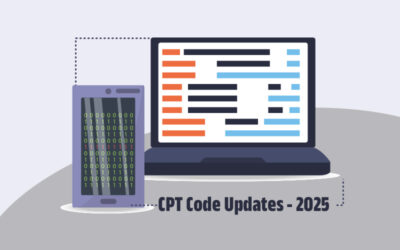Physician coding companies played a key role in helping healthcare providers across the nation transition to ICD-10. Now recent reports say that there is a glitch in ICD-10, which CMS points out occurred as a result of the changes in the ICD-CM (Clinical Modification) and ICD-PCS (Procedural Coding System) updates that became operational on October 1, 2016. An article in Modern Medicine lists the key points that physician should know about the glitch:
- The glitch has affected only Physician Quality Reporting System (PQRS) data for the fourth quarter of 2016.
- The PQRS components reportedly affected are the ICD-CM (Clinical Modification) and ICD-PCS (Procedural Coding System).
- The glitch seems to “undercount” the quality measure denominator calculations.
- The groups most affected are the Diabetes Measures Group, Cataracts Measures Group, Oncology Measures Group, Cardiovascular Prevention Measures Group and Diabetic Retinopathy Measures Group.
- The glitch has led CMS to reduce physician quality penalties, which are normally 2% of the Medicare fee schedule.
So what are the implications of this glitch for physicians’ practices and what should they do? The Medical Economics report gives experts’ views on this:
According to legal experts, physicians’ practices should ensure that:
- Their systems are updated to the latest version of ICD-10.
- All their physicians and eligible professionals are using the latest and most specific codes.
- The physicians are supporting code assignment with adequate documentation.
- They have signed up for PQRS as not reporting would result in a penalty.
- Conduct an audit to ensure that their coding and documentation are up-to-date with the latest requirements. Even if their diagnostic data for 2016 Q4 has already been input, a thorough check is highly recommended.
- Continue to report PQRS measures as they would normally, even if they have low denominator scores.
Providers should scrutinize PQRS adjustments that are issued. If they believe that a payment adjustment they received is the result of the ICD-10 code update, they can submit a request for an informal review of the payment adjustment from CMS. If they are penalized on their PQRS metrics for 2018 on account of this glitch, they should complain to CMS.
Staying up-to-date with any changes to the ICD-10 system is crucial and this can be easily accomplished by partnering with an experienced medical billing and coding company. A reliable company would continuously train their coders and billing staff to ensure reporting with the highest degree of accuracy and specificity. They will ensure that the codes assigned are in sync with the content of the medical record. Partnering with the right physician coding company will help providers avoid allegations of wrongful billing and fraud.
According to reports, CMS is expected to issue an addendum later this year addressing relevant updates to ICD-10 value sets for The Merit-based Incentive Payment System (MIPS). This will ensure that there are no similar glitches in MIPS calculations beginning in 2017.




